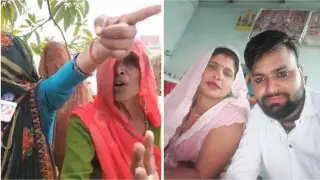
The Centre has opposed a batch of pleas seeking the legal-validation of the same-sex marriages in the society in the Supreme Court. The Centre said that it will create dis-balance in the society and will cause complete havoc with the delicate personal laws and values of the society. The Supreme Court is scheduled to hear the matter today, on the affidavit submitted by the government despite the decriminalisation of Section 377 of the Indian Penal Code. In their opinion, the petitioner cannot claim the fundamental rights for same-sex marriages.
Opposing the petition, the Centre has told the Supreme Court that the “legislative understanding of marriage in the Indian statutory and personal law regime” refers only to marriage between a biological man and biological woman — and any interference “would cause complete havoc with the delicate balance of personal laws in the country and in accepted societal values”.
According to information, the affidavit was filed in the Supreme court in response to a batch of petitions seeking recognition of same-sex marriage. In November last year and January this year, the Supreme Court issued notices to the petitioners about their upcoming hearing.
Based on the Center’s affidavit, living together as a partner and having sexual relations with the same sex are not compatible. There is no comparison between this and the Indian family concept of having biological men and women with children born out of them.
“Family issues are far beyond mere recognition and registration of marriage between persons belonging to the same gender. Living together as partners and having sexual relationships with same sex individuals [which is decriminalised now] is not comparable with the Indian family unit concept of a husband, a wife and children which necessarily presuppose a biological man as a ‘husband’, a biological woman as a ‘wife’ and the children born out of the union between the two – who are reared by the biological man as father and the biological woman as mother,” the affidavit stated.
Earlier a bench of Chief Justice of India DY Chandrachud and Justice PS Narsimha and Justice JB Pardiwala transferred all petitions seeking the recognition of the of the same-sex marriage before several high courts to itself.
The Centre in its affidavit said that the registration of marriages in the same sex will lead to violation of the existing personal laws and codified law provisions such as degrees of prohibited relationship, ceremonial and ritual requirements under personal laws, and conditions of marriage.
“The intent of the Legislature was limited to the recognition of a legal relationship of marriage between a man and a woman, represented as husband and wife. The prayers of the Petitioners, in PIL/Writ jurisdiction clearly seek to re-write the legislative text and intent under various codified statutes governing marriage and other issues ancillary thereto,” the affidavit said.
The government also clarified that the same-sex relations are not unlawful by the state only recognise the heterosexual relationship for the marriage. “The State does not recognise these other forms of marriages or unions or personal understandings of relationships between individuals in a society but the same are not unlawful,” the affidavit stated.
The 56-page affidavit has been drafted by Advocate Kanu Agarwal and Gaurang Bhushan from the side of Union of India. And the same has been settled by the Solicitor General of India Tushar Mehta on March 12. The affidavit was submitted in response to the Court’s ruling that petitions for same-sex marriage solemnization under the Special Marriage Act will be reviewed. According to the Special Marriage Act of 1954, Couples who are unable to wed under their personal law have a legal form of marriage available to them.













Copyright © 2025 Top Indian News
